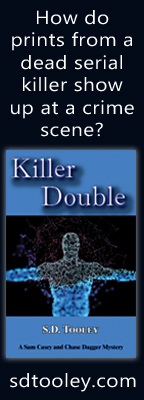by Steven Sanchez
If you were in Fresno in the mid to late 1990s and you thought of Fresno State Basketball, one name comes to mind: Chris Herren, the basketball prodigy from Fall River, Massachusetts. At the time, he played under legendary coach Jerry Tarkanian, who won the NCAA National Championship in 1990 at UNLV and was commonly referred to as “Tark the Shark.” The coach, who was a Bulldog alumnus, took the young Chris under his wing, and it was this relationship that helped culminate Fresno Basketball into national prominence, also raising the stock of the basketball star. After his tenure with the Bulldogs, Chris was drafted into the NBA by the Denver Nuggets. A dream come true. For Chris, that dream turned to a nightmare.
Throughout his playing days from going to Boston College and ending up at Fresno State, his college career was riddled with drug problems. He was under the scrutiny of the national spotlight for his marijuana and cocaine use, rehab stays, and off-the-field troubles. Once he got to the pros, he then graduated to prescription drugs and heroin use.
He went from scoring points on the court traveling the world to play ball for his hometown team with the Boston Celtics, to wandering the streets trying to score his next fix.
His story was the topic of his speech when he made a public appearance at Clovis High School on September 11th for a Parent Night. The mission statement displayed on the projector above the gymnasium read…
Clovis Unified is partnering with former Fresno State Basketball star Chris Herren to educate and empower parents to consider the source of substance abuse. Chris will share about his basketball career, journey to sobriety, and field questions. Involved parents are a key prevention indicator in protecting our kids from the dangers of alcohol, peer pressure, bullying, marijuana, pill use, cutting, vaping.
And that’s exactly what he did. He was handed a microphone, but he didn’t need one. Chris spoke with deep conviction, and you could hear a pin drop when he spoke. Everybody was silent and intent on hearing his story. His voice echoed throughout the gymnasium in front of the intimate crowd. He was the son of an alcoholic father and local politician, trying to fulfill a legacy in high school where his father, grandfather, older brother, and three uncles also played ball. He slipped into drugs during his college and pro days. Did he recover? Yes, he did. It took a lot of trips going in and out of rehab, failing, experiencing death, and almost losing it all until he finally saw the strength in himself to finally heal.
Because of that, he founded the nonprofit Herren Project and Herren Wellness,[15] a residential health and wellness program. His name and story rose to higher prominence when he was featured in the 30 for 30 ESPN documentary “Unguarded,” that was nominated for two Emmy awards. He’s now a public speaker talking about the dangers of drug use, his redemption and being an inspiration for change.
Kings River Life had the privilege to attend his public appearance and interview him about his deep relationship to Fresno, his recovery, how he inspires people to be better versions of themselves, and how we are all capable of it. September is Self-Improvement Month, and we shine a light on Chris Herren.
KRL: Fresno must bring a lot of good memories for you. You played basketball here. But this place also has some not so good memories, as well, with your struggle with addiction. People who suffer trauma find it hard to go back to the places where they do have trauma. For you, what keeps you coming back to Fresno?
Chris: Being 15 years sober, coming back to Fresno is only good for me. This is such a special place for me. I wouldn’t have the years of sobriety I have if it wasn’t for me coming here. I was introduced to Alcoholics Anonymous and therapy and treatment while I was at Fresno State. It helped me out a great deal.
KRL: September is Self-Improvement Month. For most people trying to change and improve themselves, it’s usually the first step that is the hardest. With you, what is the best thing to overcome during the first step down the road of change?
Chris: It’s acknowledgment. Once I realized who I truly was, is where I could work from there. Once I understood and realized the father and husband I am and was, that I needed to change. I had to. The Nuggets, the Celtics, and Fresno State were following me. I was a former person. I was just considered a former this and that, until I stepped out of that identity and took a look at the man I became, is where I realized that I could work from there.
KRL: Some people get addicted to drugs by playing sports. Getting injuries and trying to heal. The purpose is to get these athletes to return to play, not really considering lifelong damage. It seems to have been that way then, but there seems to be more awareness now. From what you’ve observed, what steps need to be done at the collegiate level and pro level to let these athletes know that medication is used to recover but to caution them from the possibility of addiction?
Chris: I think things have changed when it comes to prescription medication. Doctors are held more accountable than before and are more aware of what they’re prescribing. There’s been a lot of improvement. I think the awareness and education around opiates and what they are has changed the stigma and the culture of it. With that being said, we need to do more at the younger level. We don’t educate and prevent, but we react to the illness. Years later, after an injury or prescription, is when people deal with it. That’s why I do what I do. I get an opportunity to talk to the youth and lay it out for them. When it comes to addiction, we put so much emphasis on the bad day and we forget the first day. If we can work from the first day, we have a chance with kids.
KRL: The documentary was great. It wasn’t afraid to go to certain places. When it comes to telling your story like that, getting in depth, and showcasing the negative, were you ever scared on how far it would go in showing the nitty gritty of addiction and recovery?
Chris: What most people are unaware of is that when I told my story I took my family with me. My story carries onto my kids. They’ve been impacted by it. My name is synonymous with the documentary, addiction, and recovery. Not too many people were talking about addiction 12 years ago, and I feel we kicked the door down and put it out there. A lot of people were struggling in shame and darkness and not understanding life can be different for them. I got to the point where I didn’t want to get sober because I didn’t want to be stuck there. I felt I had nowhere else to go, so why would I come out of this world where there’s no future or not being sober? I was wrong. The life after addiction and the life that begins with recovery is phenomenal, and that’s why I tell my story.
KRL: Building upon what you mentioned, which was that feeling of having nowhere else to go A lot of people don’t have much. With you there was basketball, your relationship with coach Jerry Tarkanian, your family. You had people around you to help support your recovery. There are people out there that don’t have a support system. No one to turn to during tough times. What do you suggest to those people to keep going when they don’t have much?
Chris: There’s services out there. When I started doing this, I made a commitment to myself and to my family that I was going to help others. My foundation, Herren Project, has given over eight million dollars in the last 10 years in scholarships. We’ve paid for over 3,000 families to go away and get some help. There are services, and resources, and organizations out there that would gladly step in and assist you in that time of struggle.
KRL: For people on the road to change, there’s always a thing that stands in their way. It may be fear, doubt, insecurity, other people, or even themselves. Whatever it is, what do you say to those people, and how do you inspire them to persevere despite the adversity they’ll face?
Chris: It’s not a straight line. You have to accept that. Neither is recovery. I’ve taken a lot of losses during my recovery. The beauty is that I’m present for my losses. I feel them, and I’m able to work through them. For me, to overcome adversity and struggle while sober, is remarkable.
KRL: For those people in recovery, when they see you and your story, what do you hope they think about when it comes to your story and how it can help them?
Chris: I’m them. There’s no difference. We have this illness, disease, and we’re fighting to keep it at bay. The recovery community is “we” and not “I,” and I want people to see me as them fighting the fight one day at a time.
If you know of anybody struggling with addiction and seeking recovery, you can contact:
herrenproject.org
herrenwellness.com


















0 Comments